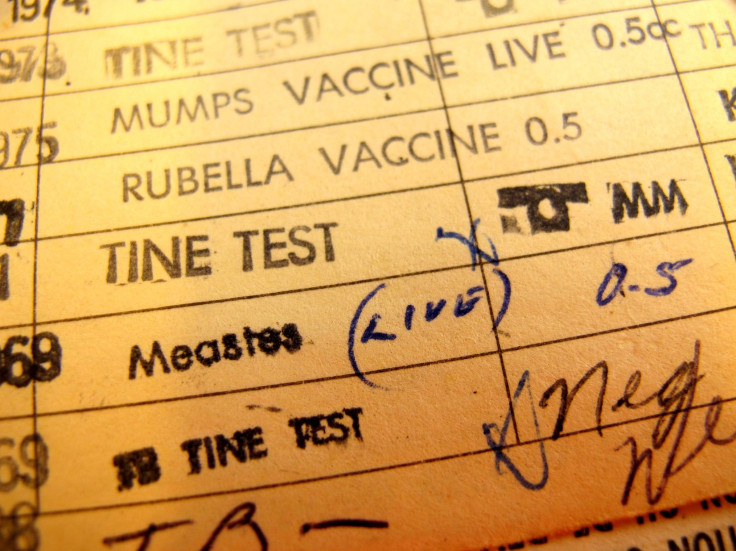Anti-Vaxxers On The Decline: New Poll Finds Parents Are Gaining Confidence In The Benefits Of Vaccines

Polio. Yellow Fever. Smallpox. For the average U.S. citizen, diseases like these could have been thought up by those who wrote our history textbooks. When was the last time anyone we knew contracted polio? Could any of us name with certainty the year of the latest diptheria outbreak? Conditions like this have left the conscious mind of the public, to be only remembered as horrifying ordeals of years past, thanks to modern medicine. Until very recently, measles and mumps were among these diseases.
In the spring of 2014, several students at an Illinois college came down with mumps. Only a few weeks into 2015, a measles outbreak believed to have been born at Disney Land became the latest and greatest of several measles incidents across the country. That these outbreaks popped up just after the country was caught up in a fresh wave of anti-vaccine fervor is no coincidence. Ironically, it may be these very outbreaks that are just the motivation parents need to knock the sense back into them.
A new poll conducted by doctors at the University of Michigan’s C.S. Mott Children’s Hospital has found that parents’ views on vaccines became more favorable between 2014 and 2015. In a group of 1,416 randomly selected parents with at least one child 17 or younger, the general consensus aligned with the scientific facts supporting vaccines.
Thirty-three percent of the parents reported perceiving more benefits of vaccines, and 25 percent said they felt vaccines were safer now than they were a year ago. About a third of the parents also said they were more strongly in favor of school and daycare entry requirements for vaccination than they were a year ago.
"Over the last year there have been high-profile news stories about outbreaks of vaccine-preventable diseases like measles and whooping cough. These news reports may be influencing how parents perceive childhood vaccines across the country," says Matthew M. Davis, M.D., M.A.P.P., director of the National Poll on Children's Health and professor of pediatrics and internal medicine in the Child Health Evaluation and Research Unit at the U-M Medical School in a press release.
The resurgence of diseases like these has triggered debate over vaccines and continuous, often rousing, media coverage. The ample attention being paid to outbreaks has likely had an effect on how parents are thinking about diseases that previously posed little threat to their children. When asked their opinion on measles, 40 percent of parents believed the risk of measles for children is higher than it was a year ago.
"Media coverage of outbreaks over the past year, accompanied by messages about vaccines for whooping cough and measles, may be swaying parents' opinions toward stronger beliefs in the positive aspects of vaccines,” Davis said. “The impact of such shifts in perception will ultimately be measured by whether more parents vaccinate their kids."
Though the fight against vaccine-preventable diseases (and those standing in the way of their eradication) is far from over, the news that more parents are willing to take measures to protect their children is a step in the right direction.



























